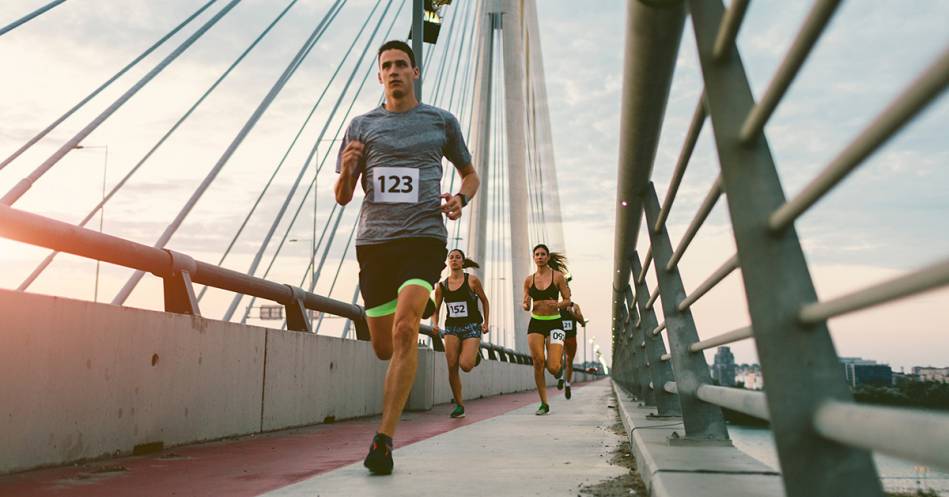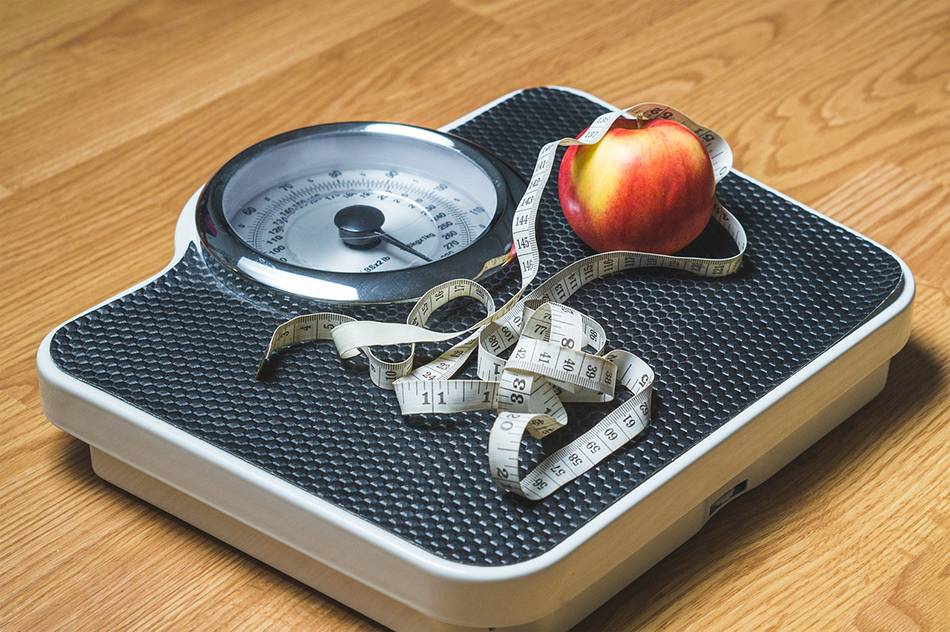
The basics of good nutrition for long-distance runners

Carbohydrates are the fastest source of energy for our body during running. Carbohydrates in the muscle and liver – glycogen stores – give us energy, just like fuel does to a car. It matters how full our tank is before departure. If we haven’t filled the storeroom properly, we might be subject to acidification, prone to injury, and concentration problems may arise. It is very common to lose muscle mass during running and for the immune system to weaken as well. Thus, after-sport regeneration is of paramount importance, which can be promoted with the right amount of nutrients consumed, and good timing. Because we are different and everyone has a different body, metabolism, and muscle, there’s no single diet for everyone. It is always based on our own experience and observation that we can create the right meal plan, so it is essential to be aware of the basics of good nutrition with long-term endurance training.
The basis of good nutrition is macros
Macro-nutrients are energy-providing proteins, fats and carbohydrates. Many people also classify water here because the body needs more of that too. In the case of long-distance runners and other endurance sports, it is extremely important to provide the necessary nutrients in the right proportion.
| 55-62% of our daily energy needs should be consumed of carbohydrates, 15% of protein, and 20-25% of fat. |
Many people prefer to provide the need for macros per kilogram of the body weight, which in this case means 6-10 g/kg of carbohydrate. Because we are different, our body composition and metabolism are also different, so that also affects how much we need to consume. We should take it step-by-step: the diet of the previous period is the starting point and needs to be refined so it is easy to find the exact quantities and proportions for the tournaments. In the case of runners too, we start out from the fundamentals and raw materials of healthy nutrition, thus, the goal is for our body to get food in its most natural form. Of course, an athlete should consume everything in a different proportion and quantity from an average person – having a higher sugar intake, for example.
Runners get most of their energy from carbohydrates, so that is the most important fuel before training, and it has a key role in post-workout regeneration. Proteins are also very important for regeneration, as they are responsible for muscle maintenance, but also play an important role in the proper functioning of the immune and hormone system. By consuming fats, the body is supplied with high calorie nutrients that are required for the functioning of the hormone system and the absorption of fat-soluble vitamins.
In the case of athletes, it requires even more attention to ensure that the body gets the nutrients it needs every day. By filling up on vitamins and minerals, we can help the metabolic processes.

Forbidden foods for long-distance runners
Now let’s look at some of the foods we should avoid before training and trials.
Mushrooms
Mushroom digestion is a very long, up to 10-hour process and puts a strain on the stomach. The chances of food poisoning are also frequent, so you should definitely avoid it before tournaments.
Red meat
Before competitions, high protein foods are also not recommended, especially red meat, but neither are duck and goose. Proteins and fats take unnecessary energy out of the body when these are consumed.
Cream and cheese
High fat content slows down the digestion process, so the body cannot fill glycogen stores quickly and efficiently. Professionals generally do not recommend drinking milk before running either, because of its mucilage-forming effect.
Legumes
They stay in the stomach for about 4-5 hours, so the body gains energy from them very slowly. Because they have a relatively high protein and fiber content, and a bloating effect, it is worth avoiding them.
Everything new
The most important rule is that we never test anything before competitions. Neither food nor supplements. These are always tested and presented to our body in training.
How many times a day to eat when you are preparing for a competition?
This question often arises and there is no specific answer. It depends on when you wake up and lie down, and how much you train. The correct number is between 4 and 6 meals. You may be training for 3-4 hours a day, in this case you can also add a meal in-between in the form of supplements. Digestion time of foods may be a key issue, because what the body uses the energy for when it comes to training makes a difference. In the case of runners, nutrient deficiency most often results in the form of weight loss or muscle loss. In this case, it is clear that energy consumption is much higher than intake, and protein replacement is also questionable – it is important for endurance athletes also to have the right amount of protein intake for muscle maintenance. Nutritional deficiencies may result in the weakening of the immune system, or diseases too, but they may also cause muscle spasms and acidification.
| The amount of nutrients required for exercise may be ensured by a properly assembled, balanced nutrition. This helps prevent spasms and acidification, losing weight or losing muscle, and the weakening of the immune system. |
Regularity is very important, as just like our car needs fuel to go, the body also needs a continuous supply of nutrients.
Take these dietary supplements for endurance sports.
In the days before a race, it is worth filling up our vitamin and mineral supply to eliminate potential muscle spasms. During training, we lose a lot of fluids and electrolytes by sweating. Sodium is a key electrolyte the deficiency of which can lead to fatigue, muscle spasms or even losing conscience. Potassium also plays an important role in regulating fluid and electrolyte balance. Magnesium is not only very important for our muscles but also plays a role in the regulation of the nervous system, the circulatory system and the cell membrane.
| With an isotonic drink, both carbohydrates and electrolytes can be replenished. The MultiSalt capsule is a very good choice – especially in the case of extreme pressure and sweating -to maintain the electrolyte balance. |
Prolonged, intensive preparation requires increased iron and vitamin C intake. Iron plays a role in the production of oxygen-transporting proteins (hemoglobin, myoglobin) and the formation of enzymes involved in energy production. For female athletes, iron deficiency is particularly common, but it should be treated by those who diet and vegetarian athletes as well. Zinc plays an important role in muscle building, regeneration and immune system health.
If you want to replace micronutrients complexly, you need to choose multivitamin and mineral supplements.
Don’t forget about hydration.
For a good running performance, a properly hydrated body is essential, so be sure to consume plenty of fluids – especially water – during the week of the race. You can check your hydration with your urine: the lighter the yellow, the more hydrated your body is. However, if it’s dark yellow, you should quickly increase the intake of fluids. As hydration decreases, physical and mental performance deteriorates. Blood pressure and body temperature increases, fatigue begins to develop and digestive system complaints (nausea, vomiting, diarrhea) can occur.
So, how does it look expressed in figures?
| 2% weight loss from fluid reduces performance by as much as 80%. This means a loss of 1.4 kg of fluid for a 70 kg person. 4% weight loss (2.8 kg) may cause nausea, dizziness and diarrhea. |
Always watch for the signs of your body, because usually when you feel thirst, you have a near-dehydration condition – so you should drink at some intervals, even if you don’t feel the need to take liquid.
For 2-4 hours before sports, 5-10 ml of fluid per kg of body weight is recommended, especially in the form of water. The recommended rate of fluid intake during exercise is between 1.5 and 3 dl of water every 15 or 20 minutes, depending on the person, the environment and the body weight. Anyone exercising longer than 1 hour is recommended to drink an isotonic drink.

Energy-giving food for the race day
The biggest challenge beside long workouts is the intake of the right nutrients and their quick utilization. Over the course of several hours of competition, providing carbohydrates is a priority, because the body can gain energy quickly and efficiently from them. The most important goal is to protect our glycogen stores.
Breakfast before a running competition
It should consist predominantly of carbohydrates and foods that are hard to digest should be avoided, i.e. high fiber, protein, and fat ingredients. 1 cup of freshly squeezed juice or smoothie should form part of the breakfast. If you have a tried recipe for a green juice, you should not miss it.
Recommended dishes for breakfast before the race:
- 2-3 slices of toast with jam and honey
- porridge (oat, spelt, millet, rice) with fruit
- natural muesli with fruit, with little oil seed
- pancake with maple or fruit syrup and 2 eggs
- 1-2 toasts with jam or honey and a low-fat yogurt
- bagels or muffins, banana and freshly squeezed juice
It is worthwhile to test them all, because some people prefer the more easily digestible porridge form of cereal, while others prefer flakes. You can boost your meal with dried fruits and oily seeds. By enriching with oily seeds or eating a higher protein meal, we slow down the absorption of carbohydrates, and thus reduce the glycemic index – but some people might set out just to do that.
Nutrient supplementation during a running competition
The following should be implemented during the competition:
- Usually 60 g of carbohydrates is recommended per hour.
- Solid food recommended at the start of the race – e.g. energy bars – and gel towards the end.
- Energy bars, oatmeal, dried fruit slices are excellent.
- The following fruits are recommended: bananas, grapes, melons, apricots, nectarines, pears.
- Out of the vegetables, carrots or kohlrabi are a good choice.
- It is also worth consuming dried fruits: raisins, apricots, dates.
- A few biscuits can be of great help too.
- Energy gel is also an excellent choice. – Read our article on energy gels to find out about their use.
- Isotonic drink is an absolute must.
With the energy bars and gels developed for athletes, we not only replenish carbohydrates, but also vitamins, minerals, and get a complex product that has a positive effect on our performance.
Meals after a running competition
The most important task after the competition is to restore the glycogen stores and start regenerating. To do this, the body needs carbohydrates, protein and a lot of vegetables. Make sure that the food is not too fat because then it stays in the stomach for too long, and slows down the digestive process. If the meat is consumed in minced form, it accelerates digestion.
The following dishes should be consumed after the race:
- turkey, lean cheese, salad, tomato, millet or bulgur
- tortilla: grilled chicken breast, salad, tomato, rice
- grilled chicken breast sandwich, low fat yogurt, rice or pasta
- pasta, ravioli, steamed vegetables, pudding and fresh fruit
- spinach, turkey pasta
- oatmeal pizza
- fried or grilled lean beef, chicken, turkey, fish, steamed rice, steamed green beans, low-fat yoghurt
What are the 5 most important things to know about good nutrition for long-distance runners?
- Most important are your own experiences and observations. There is no exact recipe that works for everyone, but the basics of sports nutrition should be the starting point. We work out the right diet and supplements in training.
- Complete foods, rather than refined carbohydrates, provide the basis for nutrition. Replenishing the carbohydrate storage is of paramount importance, so carbohydrates should be the basis of nutrition.
- Eat high-quality fats, fish oil, olive oil and oil seeds every day.
- Drink a lot, hydrate yourself. One of the most important pillars of performance is fluid consumption. Without it, performance deteriorates measurably. Before, during and after sports, choose the appropriate hydrating drinks and electrolytic products.
- Timing is everything. Low fat, protein and fiber foods are recommended before exercise. Milk and dairy products should be consumed after exercise, because the protein content of dairy products also helps to maintain muscle.